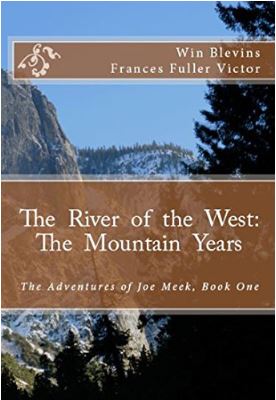 Come meet Joe Meek. He is full of thumb-your-nose at the universe sass. His recollections are a barbaric yawp of joy—joy in life, joy in youth and vitality, exultation at challenge and danger. Of all the men who walked the Rocky Mountains a century and a half ago, none other is so alive.
Come meet Joe Meek. He is full of thumb-your-nose at the universe sass. His recollections are a barbaric yawp of joy—joy in life, joy in youth and vitality, exultation at challenge and danger. Of all the men who walked the Rocky Mountains a century and a half ago, none other is so alive.
This is his book, the tale of his doings in the Rocky Mountains. He tells it in high style. The Joe he yarns up is one of the West’s most irresistible characters—dashing, devil-may-care, cheeky, irreverent, more fun than a playful grizzly cub.
Joe Meek will play every sort of prank on his companions, and maybe on you, too. He loves a good story, and has the sense to tell it tall. He has the spirit to spin some stories at his own expense, but the grace to tell none that demean a companion. He won’t tell sad tales, and he won’t sit still to hear one.
Is the Joe of these pages the real Joe, or was he the sort who lived it one way and told it another? According to historical records, Joe is resoundingly the man of his stories.
The large picture of his character and spirit seems true enough. The missionaries complained about him, saying he was irreverent, too free-handed, that he preferred hunting and fishing to manual labor, and he wouldn’t stop teasing them when they tried to convert him.
Joe’s wife Virginia was a Nez Perce Indian woman. When he left the mountains, Virginia went with him. They knew their union would be a tough one in the white settlements. But, they were married thirty-five years and had seven children together. His loyalty was solid.
In Meek’s essential innocence and optimism, his vitality, his self-confidence and zest for life, Joe reminds me of a matured Huck Finn. Joe explored the mountains freely and kept his boyish enthusiasm through everything. He didn’t like the Aunt Polly’s of the world with their moralizing and burdensome seriousness. Life was just too much fun for that.